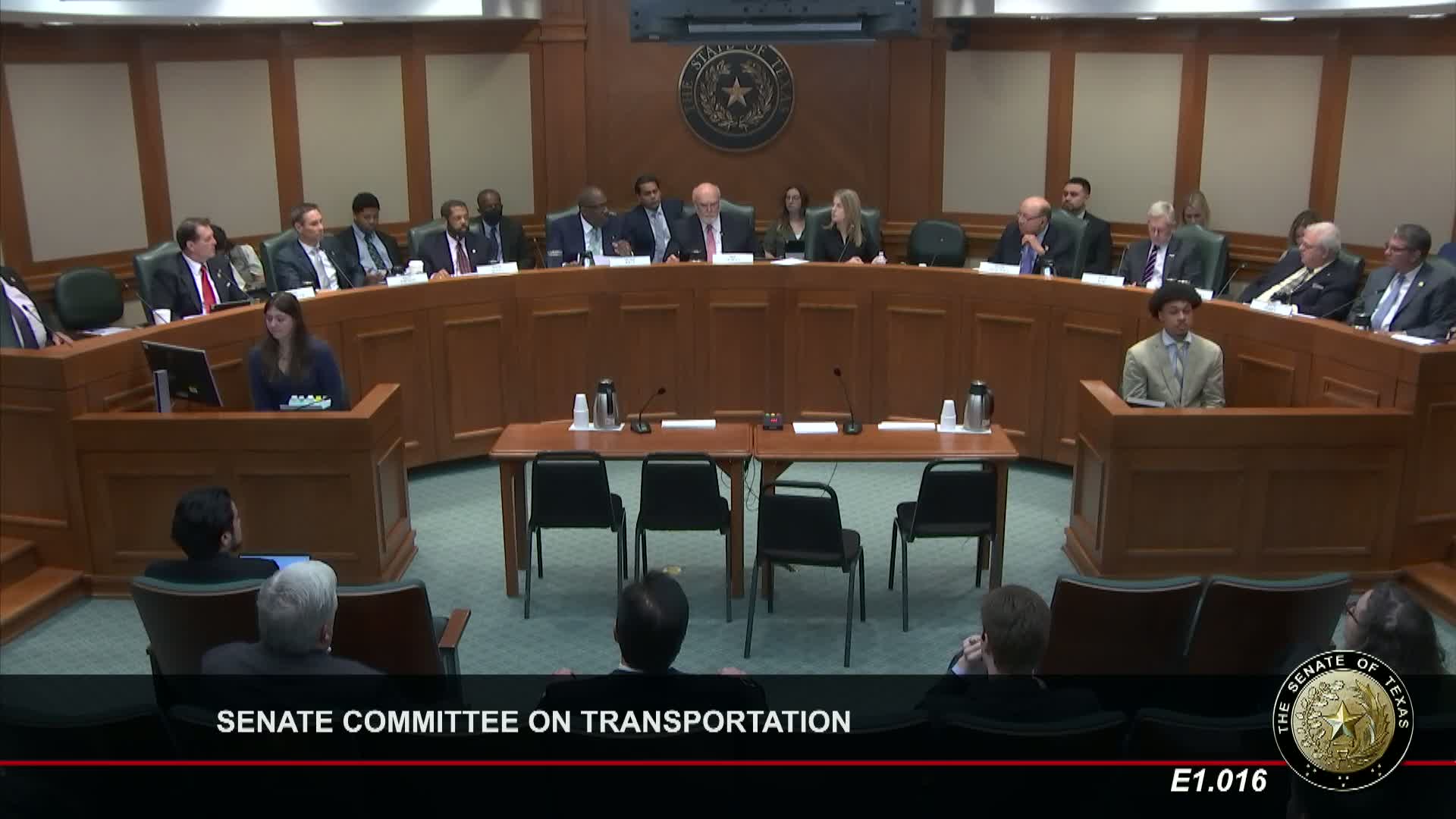Article not found
This article is no longer available. But don't worry—we've gathered other articles that discuss the same topic.
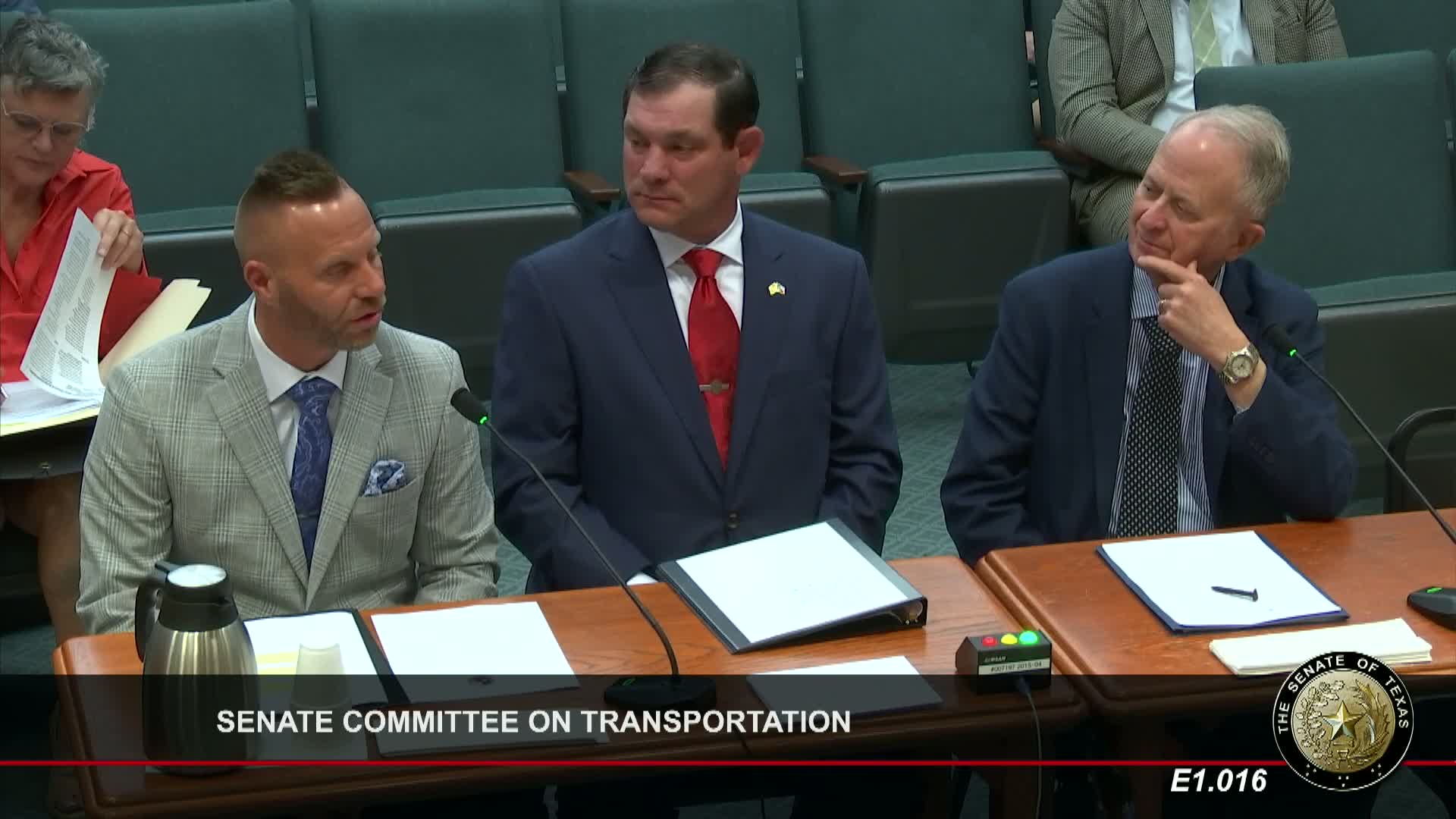
Panel advances bill to give ports more procurement flexibility; Corpus Christi raises tax and local control concerns
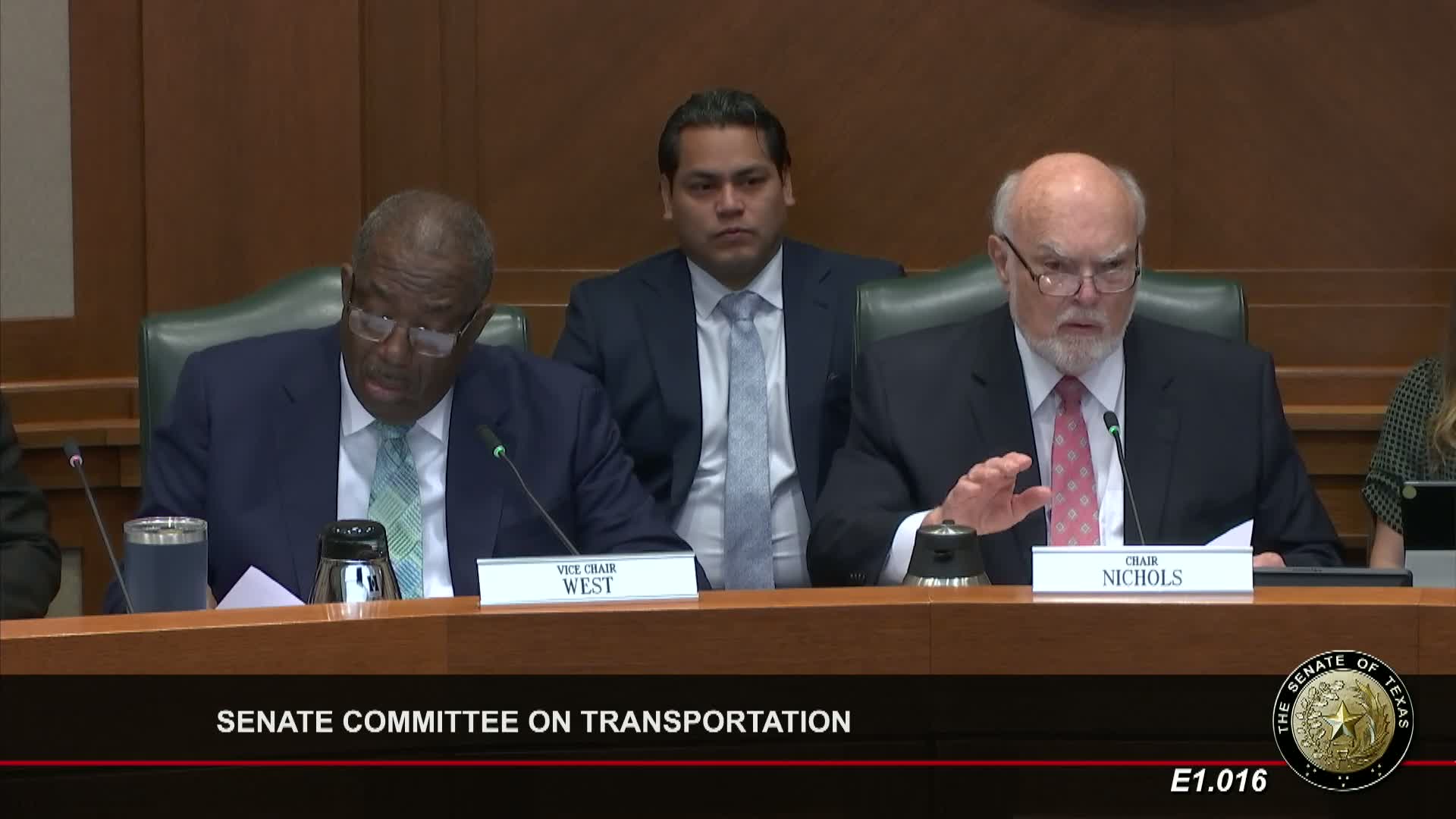
Committee considers expanding ‘Lisa Torrey Smith’ protections to sidewalk curb‑cuts
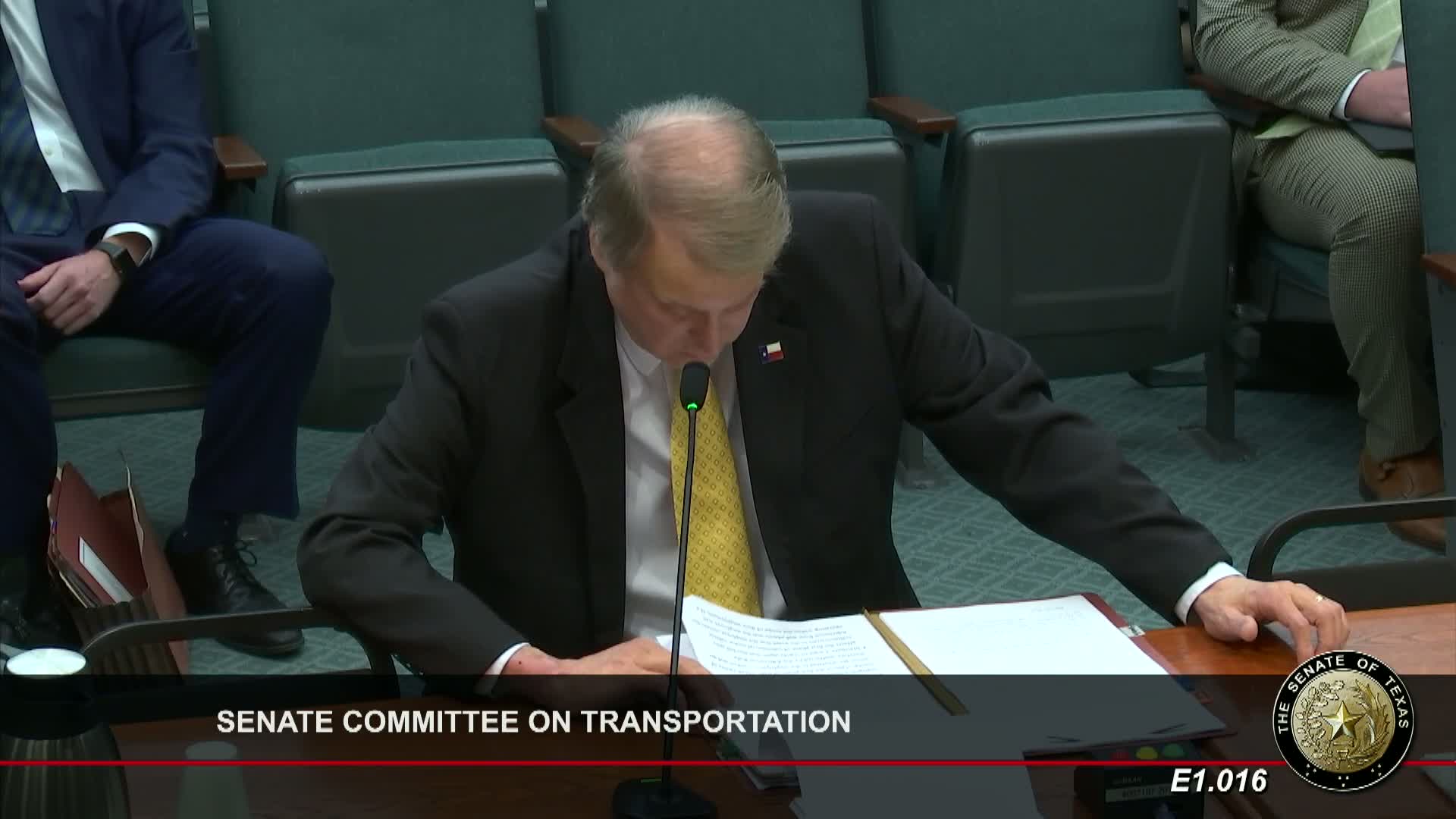
Committee hears bill to create state grant program for short‑line railroads
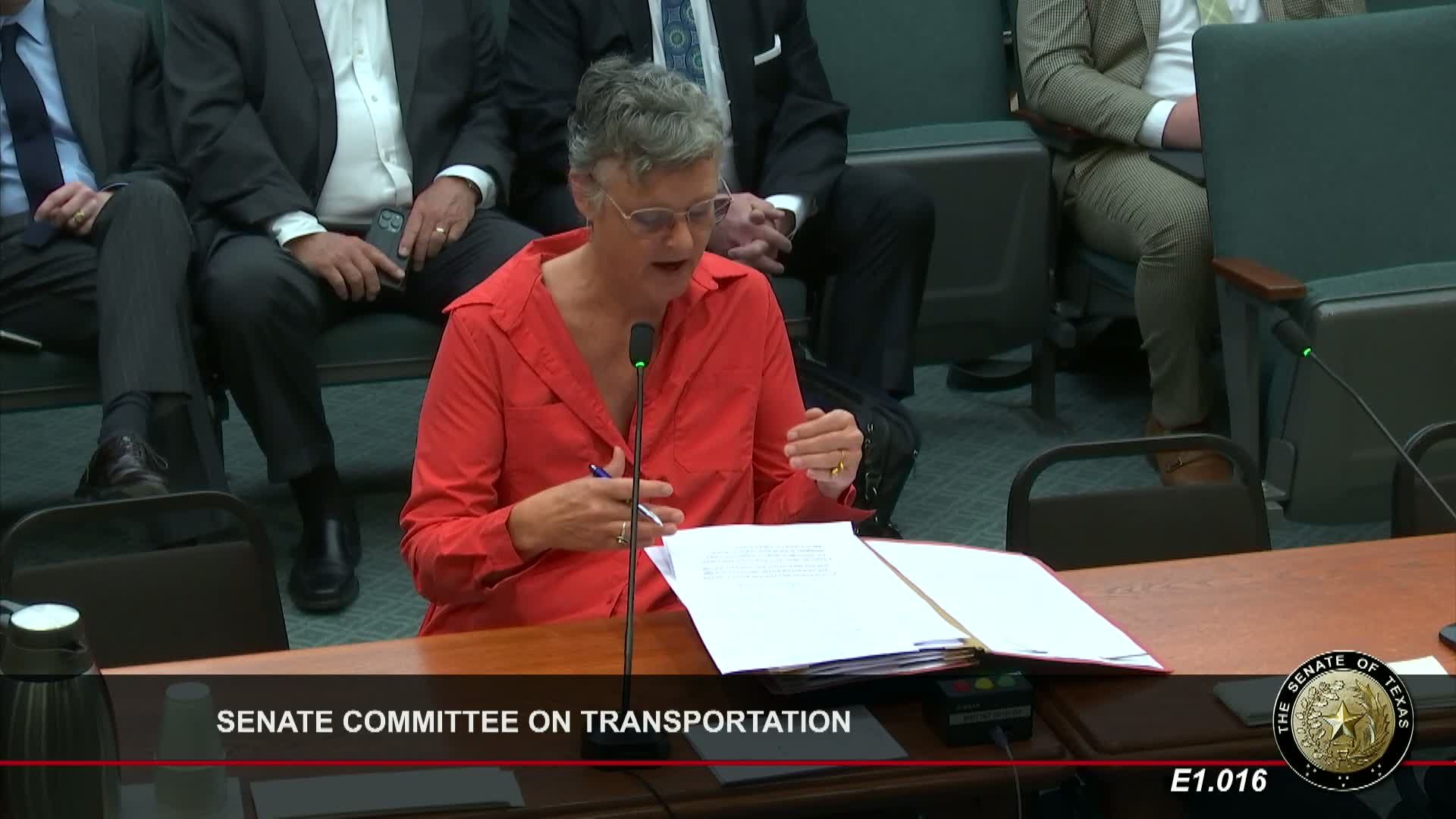
Senate committee hears technical fix to Port of Brownsville overweight‑corridor language
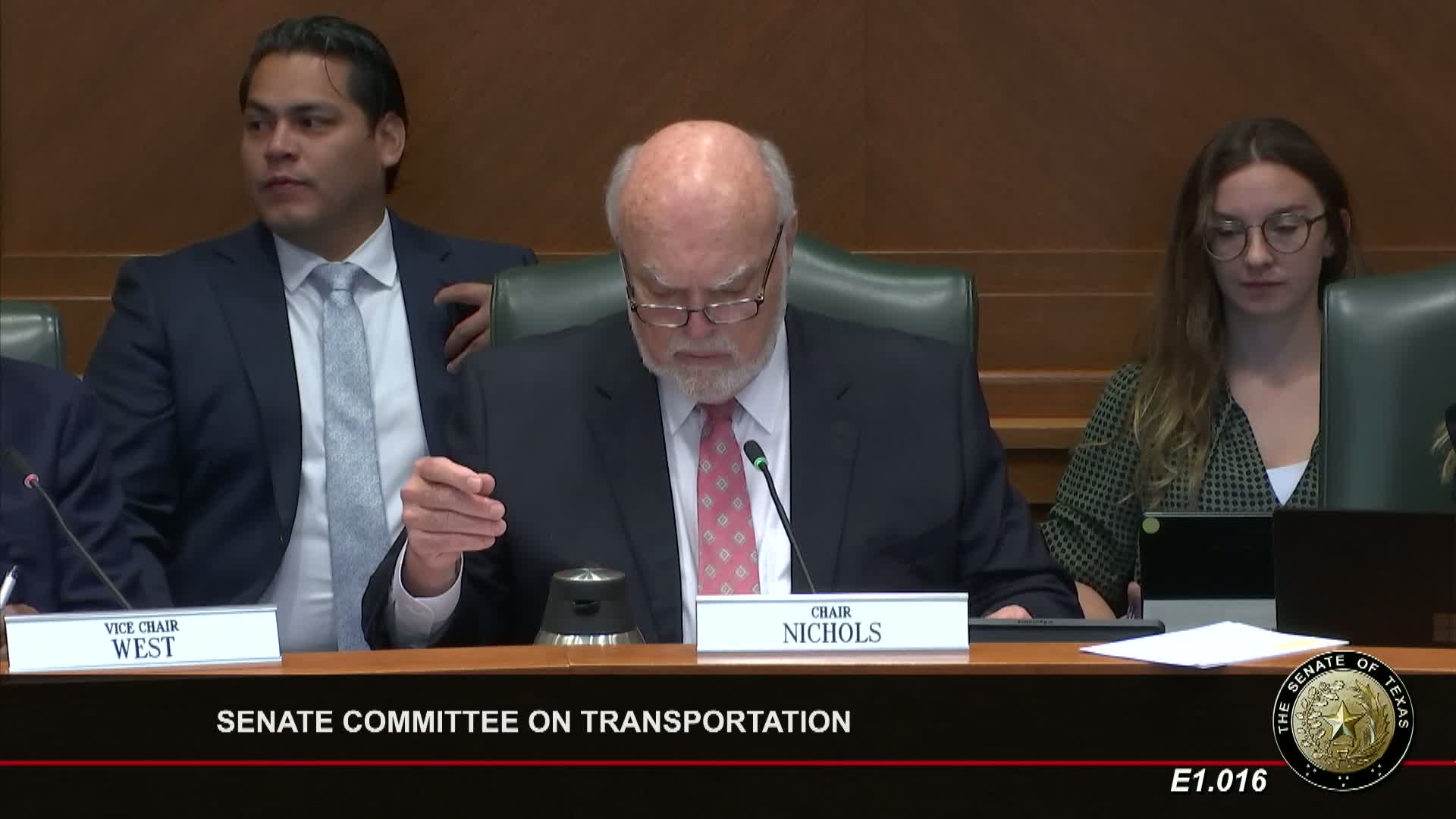
Votes at a glance: Senate Transportation Committee (selected bills reported to full Senate)
